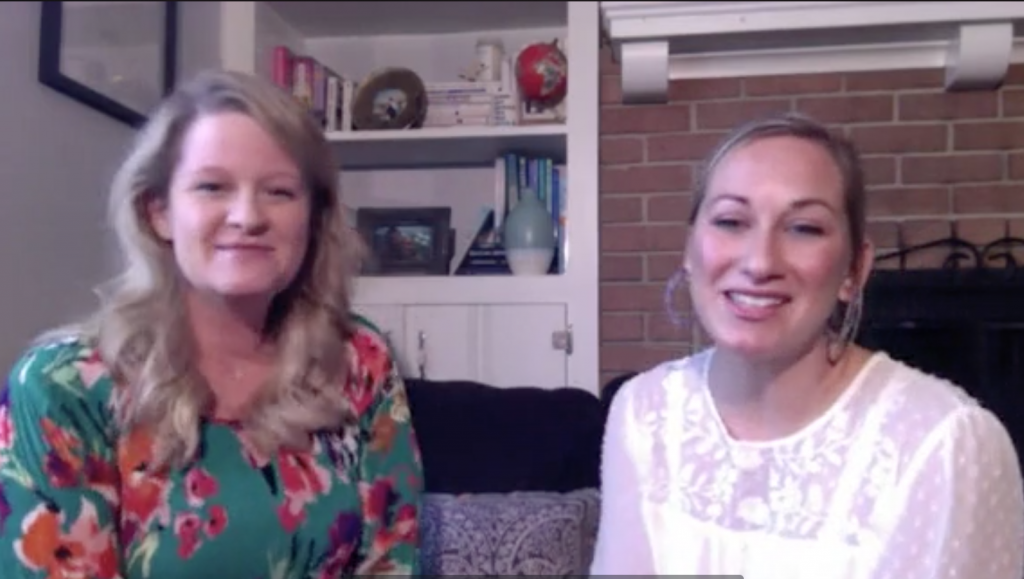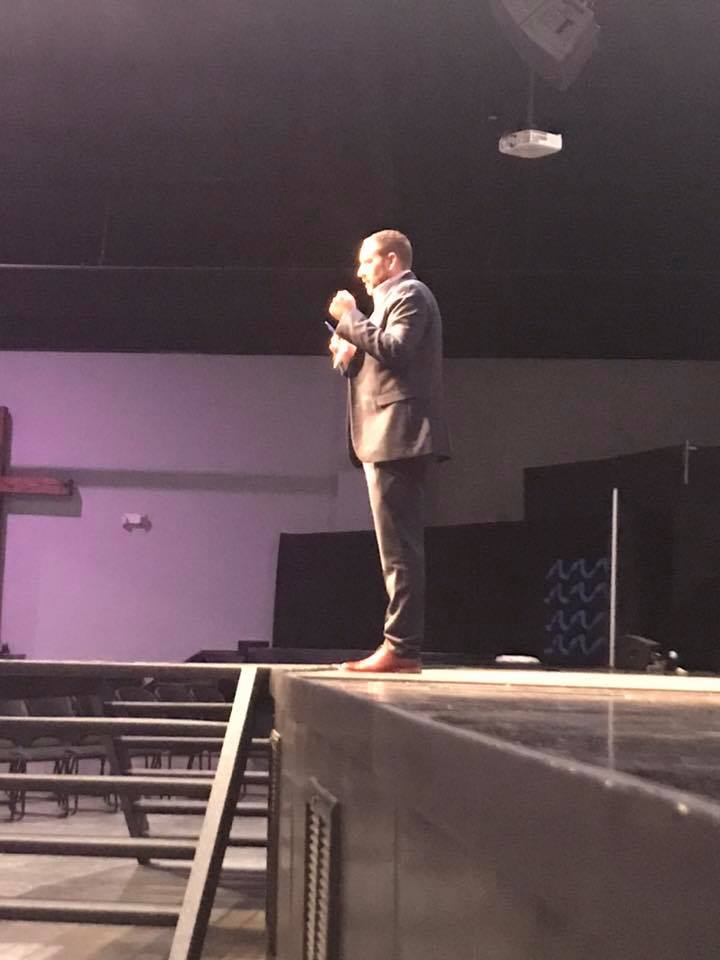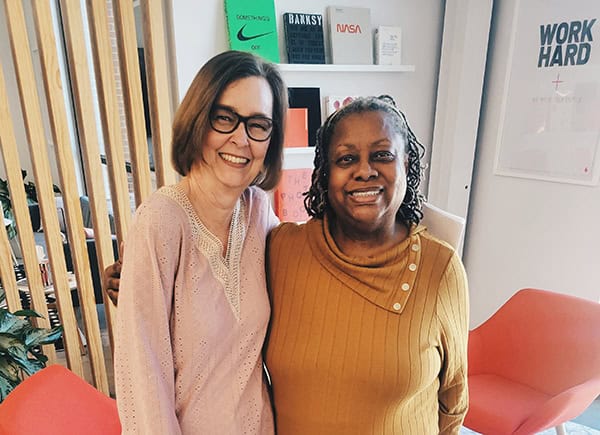
The Role of the Foster Parent Liaison
If you’ve been fostering for any time at all, you know that there are a lot of questions that arise as you embark on this journey. Sometimes it can be confusing to know where to go or who to call. Sometimes you just truly are unsure about the resources that exist and how to truly help the kids in your care. Support is key! No one can thrive in fostering in isolation.
Randi, SC DSS Foster Parent Liaison & Recruiter, told us on #FosterFridayLive about the new position created to help foster parents feel heard and feel supported. She will share how foster parents can use her (and counterpart Jim Casserly) as a resource. “We want to add a personal touch,” Jim has previously explained to Care2Foster. “Serving as a resource to help foster families is a great thing.” You can read his interview here.

Jim and Randi both speak with numerous foster parents and stakeholders every day. They hear common concerns and make connections to the right people or offices. As they see patterns emerge, they can help identify larger solutions.
Randi has worked with DSS since 2012 starting as an intern and then as a foster care worker in Lexington County. She became a Program Coordinator with Guardian Ad Litem. Most recently she was supervising the Midlands initial foster care licensing. Now, she acts as the newest Foster Parent Liaison.

What is the job of the Foster Parent Liaison? Why does this role exist?
The role originated from the Michelle H lawsuit. DSS needed to have someone to open up the lines of communication, but beyond a legality, our leadership definitely knew we needed changes. We needed help with retention and recruitment as well. So Jim was brought on and then I was brought on to open up communication, listen to new ideas, and be a part of the Town Halls we’ve been doing. We are hearing foster parent voices and resolving any issues that we’re able to resolve.
One of my favorite thing in any of my roles has always been sharing what I know with others and now I have a chance to do that but also to listen and really hear what are foster parents need.
What type of support can you offer foster parents? How are you uniquely positioned to solve some of these concerns from foster parents?
Support can come in many different ways. We want to ensure that people feel that their voice is being heard and that we are opening up the lines of communication for foster parents and stakeholders. A lot is changing so letting people know about these new changes, but also making sure our foster parents are able to come to us. We don’t just hear them but we are able to respond to them and address the issues when we’re able. We’re not meant to bypass our frontline professionals. I’ve been a case worker so I know that most of the time they aren’t just sitting at their desk. So they deserve the opportunity to serve foster parents first. If issues or concerns aren’t able to be addressed by them, they come to us. But if foster parents need links or resources or they’re not really sure who to contact about this, we’re more than happy to help.
We help both DSS licensed foster parents and privately licensed foster parents. We will help anybody who calls us. So right now, we’ve helped foster parents, kinship families, therapeutic families, adoptive families, families that are thinking about fostering and just want additional information. We all have the same mission and we want to be able to help everyone.
What are some of the most common concerns you hear? What are the most common resolutions?
That’s a tough question. We have so many concerns brought to us in a day but really it comes back to the lack of communication whether about an important meeting or a court date they weren’t aware of. That’s the central theme of it all. Something they weren’t aware they could or couldn’t do.
The first thing that we suggest is that those foster parents reach out and make the frontline professionals aware of the situation. Be honest about it and kind about it. They’re not able to fix something they don’t know about. If something happens and it is not resolved, loop in supervisors to make sure that the issue is addressed. We know that case workers change or a foster parent might not know who the supervisor is. You can always reach out to County Directors or your Program Coordinator often stays the same. But we have no problem addressing those issues from our role. If you let us know, this is who we are and we have these children in our home but we have no idea who we are supposed to contact, we can get you connected. You’re not bothering us. It’s hard to figure out everyone’s contact information. But you should know that a lot of regions are actually working on having everyone’s information provided to foster parents. For example, in Kershaw County, we just had a Town Hall meeting there and the Regional Director there makes sure that foster parents have everyone’s contact information.

Again, we are not a replacement for frontline professionals. Reach out directly to the person who needs to know about that concern first to make them aware. They aren’t going to be able to fix it if they don’t know about it. Reach out to them, reach out to their supervisor, the Guardian Ad Litem. Just make them aware of it. Approaching it with respect and with kindness changes everything. You’ll get better responses if you’re honest and just let them know respectfully instead of coming at it from frustration. Foster parents have so much valuable knowledge about what is going on with a child and they do need to be able to make their voice heard because they are a huge advocate for them.
What advice would you share with a new foster parent? What should someone considering foster care know?
I definitely think that being flexible is key. You should have the ability to know that family preservation and reunification is the heart of it all. You need to accept that and hopefully have a relationship with the child’s biological family. We encounter all these frustrations, but we know that the child is the center of it all so we need to not get side-tracked or distracted by these frustrations and what’s going on in the system. We need to collaborate and work together. We are always going to have better outcomes when we work together.
What’s something that you’ve learned from the best foster parents?
In the eight years that I’ve done this, I’ve met so many amazing foster parents. But I remember being in court and I was talking with one of our foster parents and we had heard someone in front of us say, “I doesn’t matter what you do, this person is always going to handle it like that.” And she just kind of looked at me and she said that something that helped her is to remember that there are all these stereotypes about the biological families, the foster families, frontline professionals, case workers, but if we are able to put those aside and form relationships and collaborate, it’s always going to be better for the child. Relationships are key.
What makes your job meaningful? What keeps you motivated?
My foster parents and the relationships that I’ve built with them. I think that being able to listen to them and hear their voices, let’s us know how we can improve. They call us and then actually believe that changes are coming. When you go to some of these meetings, we hear, “oh, well things are always going to be the same.” But things are changing and that’s what encourages me. We are listening, following up, and following through. Change is coming. Change is hard. If we do what we’ve always done, we’re going to get the same result.
The lasting relationships along my journey with youth that I’ve previously case managed keeps me motivated. Now I’m able to keep up with them and even go to their graduations, their baptisms, and even a wedding. The relationships with my foster parents keep me motivated. I love when they send Christmas cards or pictures or just send a message to say, “just wanted to check in.” And the relationships with my co-workers. We are working and involved in people’s lives and that is never easy. We laugh together. We cry together. We are in this craziness together. Everyone just keeps me encouraged and motivated. As well as our leadership. The changes that have happened, you know, I’m encouraged by it and I’m strengthened by it. Progress is coming and I’m excited for that.
One thing I’m excited about is that Fostering Great Ideas, the parent organization of Care2Foster, is creating a foster family handbook.



